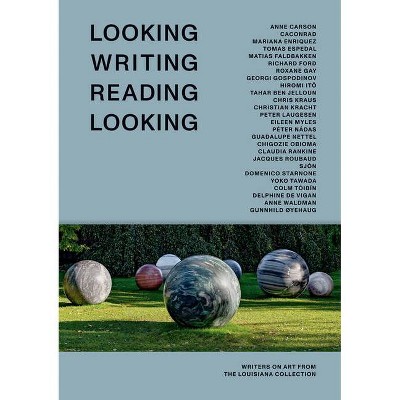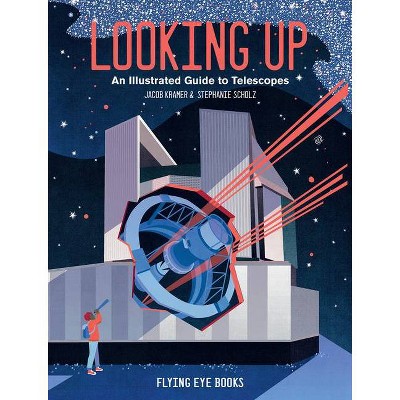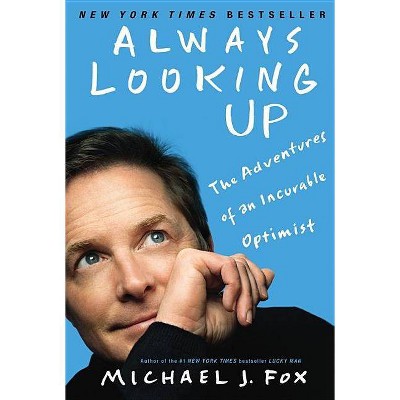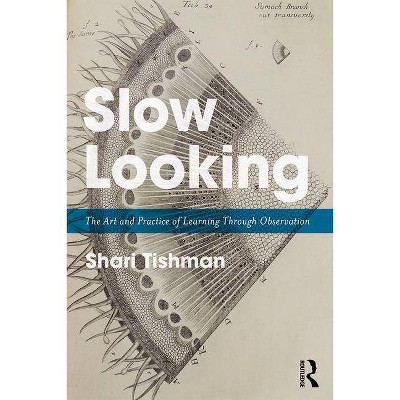Looking Up, Looking In - by Graham Andrewartha (Paperback)
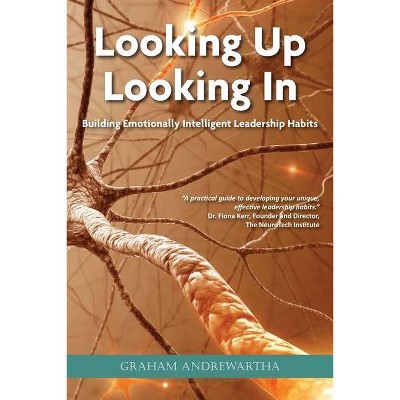
Similar Products
Products of same category from the store
AllProduct info
<p/><br></br><p><b> Book Synopsis </b></p></br></br><p>As a forward-thinking leader, you are always looking at ways to improve your skills and techniques. You have a high level of knowledge about how to get the best from your people, and you are successful in achieving your goals.</p><p><br></p><p>Yet in spite of your skills and knowledge, there are still breakdowns in communication, frustrating misunderstandings, and interpersonal difficulties that you just can't seem to overcome. These barriers and roadblocks disrupt the smooth running of your business, wasting valuable time, energy, and money.</p><p><br></p><p>As a psychologist working with business leaders, Graham Andrewartha understands that the reason these difficulties arise is because leaders bring their personal values, drivers, and biases into the workplace. </p><p><br></p><p>All too often, this key component of leadership development is not considered, placing leaders on the back foot with everything from culture to conflict resolution to creating cohesive teams. </p><p><br></p><p>Graham's passion for helping individuals and organisations overcome barriers to change has led him to write his fourth book, <em>Looking Up, Looking In. </em></p><p><br></p><p>Graham draws on his vast experience as<em> </em>a psychologist with over 35 years working with a wide variety of professional and personal clients, and training with world experts in the field, as well as his own leadership skills, honed as senior partner of MCA Group, Past President of the Australian Human Resource Institute, and Adjunct Research Fellow in leadership at the University of South Australia. Graham addresses the unhelpful learned behaviours that inhibit truly influential leadership, and shows you how to build on your positive behaviours to effectively overcome the obstacles that stand in the way of effective communication and connection in the workplace.</p><p><br></p><p>In this book you will learn how to: </p><p><br></p><p>- create positive mindset shifts</p><p><br></p><p>- develop empathic leadership</p><p><br></p><p>- recognise your influence style</p><p><br></p><p>- overcome limiting thoughts</p><p><br></p><p>- build trustworthy communication</p><p><br></p><p>This comprehensive guide to developing influential leadership is a must-read for any innovative leader wanting to take their skills, and their business, to the next level.</p><p/><br></br><p><b> Review Quotes </b></p></br></br><br><p><strong>Forward by Jeffrey K. Zeig, PhD, Founder and Director, The Milton H. Erickson Foundation, Phoenix, Arizona.</strong></p><p><br></p><p>If a conductor of an orchestra wants a perfect concert, she brings out the music inside each musician.</p><p><br></p><p>If a comedienne wants to prompt someone to laugh, she offers a joke.</p><p><br></p><p>If a football coach wants a winning game, he elicits the excitement in each player. </p><p><br></p><p>But how would you elicit the realisation of leadership? </p><p><br></p><p>Just like in the first three examples, the idea is to offer an experience that orients toward the attainable target. A simple example: To elicit leadership, you might assign a task like giving a tour, that would require an individual to lead rather than follow.</p><p><br></p><p>Why do we need to orient toward in these cases rather than offering someone information? Because a concept is best realised by experience, not by absorbing information. In such cases the target is a by-product of an experience.</p><p><br></p><p>Therefore, to prompt a realisation or a concept, evocative communication is needed, not informative communication. Informative communication is used in mathematics and science-when there is something to compute and the result will be concrete. For example, when summing the cardinal numbers from 1-100, the result will always be 5,050. Similarly, in physics, the equation F=ma explains the concrete relationship between force, mass, and acceleration. </p><p><br></p><p>But if the target is the conceptual realisation of leadership and its concomitant state and identity, then it would take an experience to elicit it. And it might require a series of evocative events that entail experiencing components of leadership, including focus, vision, motivation, connection, responsibility, empathy, and positivity, the sum of which could elicit a synergistic amalgamation that would prompt the realisation of leadership.</p><p>And because there is no linear path to leadership and the goal is not concrete, we choose heuristics over an algorithms when communicating this concept. An algorithm is a set of logical steps that leads to a tangible result. A heuristic is a simplifying assumption that targets a realisation, such as leadership or one of its components. And there are since there are many dimensions to leadership, it is intangible and not concrete.</p><p><br></p><p>When eliciting a concept like leadership there may be a progression of evocative steps: Idea/Concept/Realisation/Orientation/State/Identity. </p><p><br></p><p>Now if someone does not understand what leadership is as an idea, you can offer its definition, but this will not lead to any of the other steps in the progression. To realise any of one of those steps an evocative experience is required. And ideally, a dynamic experience of leadership would eventually prompt someone have a new identity - "I am a leader."</p><p><br></p><p>If someone offers you information, it is absorbed in the left hemisphere of the brain. We could call that learning process the "top-down" approach. However, realisations that are elicited through lived experience, could be considered the "bottom-up" approach, where knowledge is not required to understand something.</p><p><br></p><p>With <em>Looking Up, Looking In</em>, Graham Andrewartha has created the perfect leadership book that can stimulate into play the realisation of leadership. There is a balance between information and case examples and exercises that will prompt realisations. Andrewartha also backs up his propositions with current neurobiological research. </p><p><br></p><p>This is a foundational book on leadership written by a renowned and highly respected expert. I passionately recommend it.</p><p><br></p><p><strong>Praise for Looking Up, Looking In: </strong></p><p><br></p><p><br></p><p><br></p><br>
Price History
Price Archive shows prices from various stores, lets you see history and find the cheapest. There is no actual sale on the website. For all support, inquiry and suggestion messagescommunication@pricearchive.us
